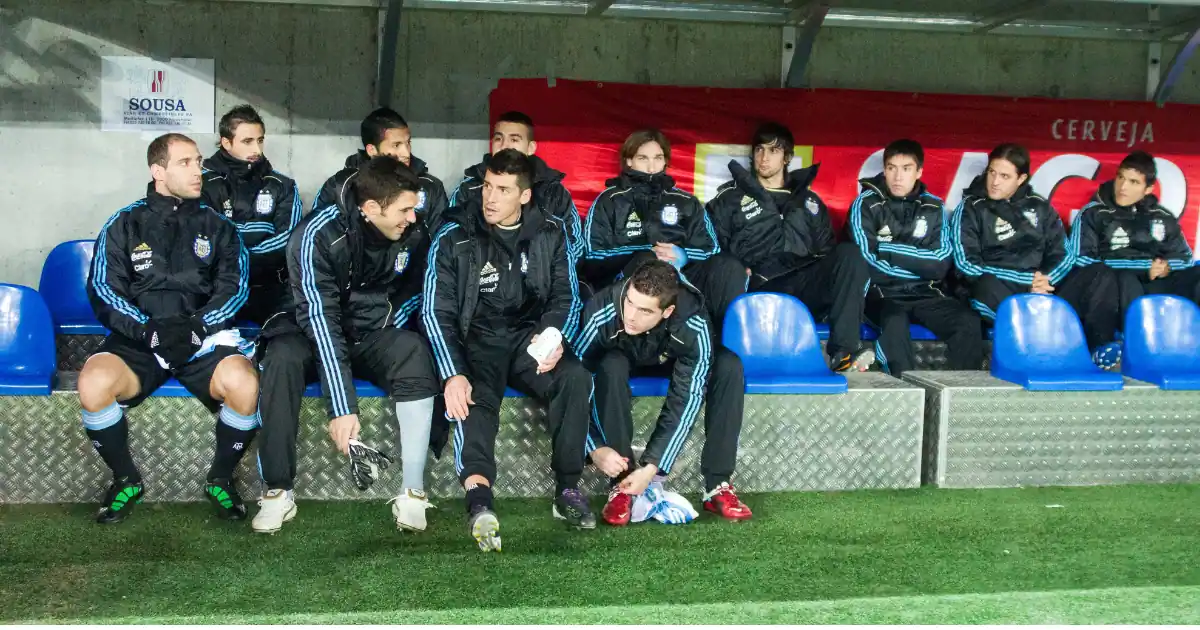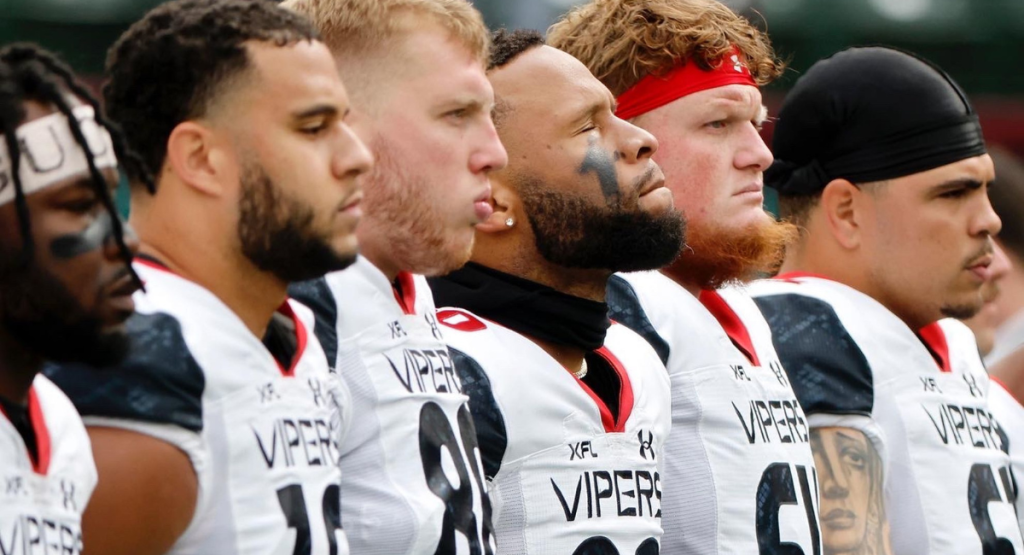As a result of the enormous stakes involved in fantasy football, when every choice has the potential to make or break a season, bench places have become an essential component of strategic planning. A dynamic pool of potential and opportunity, they are capable of shifting the course of a team’s fortunes, go beyond simply housing backup players. They serve as an archive of talent and opportunity.
It is possible that the strategic distribution of bench positions can be the deciding factor in whether a team achieves mediocrity or championship glory. This can be accomplished by nurturing depth and capitalizing on matchup advantages. Come along with us as we delve deeper into the complex strategies and strategic moves that harness the full potential of bench positions, shedding light on the vital role that they play in the pursuit of perfection in fantasy football.
Table of Contents
Maximizing Bench Strength
Bench positions in fantasy football are not just backup slots; they are a reservoir of potential that can significantly impact your team’s success. Strategically managing these spots can mean the difference between a mediocre season and championship glory.
Identifying Bench Spots
On your fantasy football squad, bench positions are the backup spaces occupied by players who aren’t in the starting lineup right now. These positions act as your starters’ backups. Throughout the season, they may be vital in replacing out-of-juice, suspended, or underperforming players.
Importance of Bench Depth
In order to be competitive in fantasy football, you need to have a deep bench. The availability of skilled replacements may make or break a team’s performance in the NFL, where injuries are a constant occurrence. Bench positions also give managers the opportunity to stow talented players who might not be starters at first in order to take advantage of breakout performances or emerging possibilities.
Management of Strategic Benchmarks
The management of strategic benchmarks is a critical aspect of effective decision-making and performance evaluation within organizations. Strategic benchmarks serve as reference points against which progress and success are measured, providing valuable insights into the achievement of organizational goals and objectives.
Through careful management, including selection, tracking, and analysis, strategic benchmarks enable leaders to assess performance, identify areas for improvement, and make informed strategic decisions.
composition of the roster:
Running backs and wide receivers are two positions that should be prioritized when managing bench slots since they are prone to injuries or have high performance variations. The ability to adapt to changing conditions is ensured by depth at key locations.
Players Who Are Stashing:
High-upside Players or prospects who might not be starters right away but have worth later in the season should be strategically stashed on the bench. Pay attention to players who could contribute later on, such as rookies, up-and-coming talent, or players returning from injury.
Adjustability in Matches:
It gives managers the opportunity to adjust their team based on certain matchups and game situations by keeping bench spots flexible. To optimize scoring potential and take advantage of holes in opponents’ lineups, rotate players according to advantageous matches or bye weeks.
Leveraging Waiver Wire Opportunities:
The waiver wire is a goldmine for fantasy football managers looking to bolster their bench. Keeping a close eye on emerging talent and undervalued players can provide crucial depth and flexibility to your roster throughout the season.
Handling Bench Positions During the Season
Handling bench positions during the season is a crucial aspect of fantasy football management. It involves making strategic decisions on which players to roster as backups and how to utilize bench spots effectively. Managers must consider factors such as player performance, injury status, and upcoming matchups when deciding who to start and who to bench.
Remain Aware:
Making decisions on bench spots requires keeping up with injuries to players, trends in their performance, and roster updates. For an advantage over your rivals, make use of injury updates, player news, and fantasy football analysts.
Use the wire waiver:
Throughout the season, the waiver wire can help increase roster depth. Watch out for players who are underappreciated because of their recent play or injuries, or for up-and-coming talent. To take advantage of new opportunities and stow promising waiver pickups, use bench spaces.
Analyze Trade Possibilities
Analyzing trade possibilities is an essential aspect of fantasy football strategy, requiring careful consideration of player values, team needs, and potential roster improvements. Managers must assess the strengths and weaknesses of both their own team and potential trade partners to identify mutually beneficial trade scenarios. This involves evaluating player performance, upcoming schedules, and injury status to gauge the potential impact of trades on team dynamics and overall performance.
Examine Player Value:

Examining trade possibilities requires a thorough analysis of each player’s worth. Take into account elements like their role on their individual teams, prior performance, forthcoming schedule, injury history, and schedule. Seek out opportunities to add underrated players with room to grow at a lower cost than they are now worth.
Determine Trade Partners:
Finding possible trading partners is essential to carrying out profitable trades. Seek out managers in your league with surplus depth in areas where you are weak or have complementary needs in other positions. Find trade scenarios that meet the needs of both parties and are mutually profitable by engaging in open conversation and negotiation.
Engage in discussions Carefully:
In fantasy football, negotiations are an essential component of trade possibilities. As you look to optimize the return on your assets, be ready to offer players you want a fair price. To sweeten the pot and raise the chances of a successful transaction, think of presenting package agreements combining several players.
How to Value a Player
It is important to do a detailed analysis of each player’s value when assessing trade possibilities. Examine a range of variables, including past results, upcoming plans, injury history, and position on their individual teams. The key to making profitable transactions can be to find undervalued players who have the ability to perform better than their present valuation.
Making Offers for Trade:
The demands of your team and your trade partner’s preferences must be carefully taken into account when crafting trade offers. Make proposals specifically targeted at players who align with your team’s strategy or to solve particular areas of weakness. To improve the chances of a successful deal, make innovative and adaptable suggestions.
Examining Multi-Player Transactions:
Examining multi-player transactions in fantasy football involves evaluating the complex dynamics of trades involving multiple players from both sides. Managers must carefully assess the value and impact of each player involved, considering factors such as position scarcity, roster depth, and potential synergies. Additionally, analyzing multi-player transactions requires a keen understanding of league settings, scoring formats, and team strategies to ensure equitable and beneficial outcomes for all parties involved.
Strategic Trading for Success:
Engaging in trades can reshape your fantasy team’s fortunes. By assessing player values, understanding your team’s needs, and identifying potential trade partners, you can strategically acquire assets that complement your starting lineup and bench depth.
Conclusion
In terms of increasing roster depth and general competition in fantasy football, trade opportunities may be a very effective weapon. Managers can take action to improve their clubs and put themselves in a successful position by carefully evaluating player value, finding trade partners, and drafting calculated trade offers. Always remember to be proactive, communicate honestly, and have a flexible approach to your trade. You’ll be playing fantasy football in no time at all.
Are you prepared to reach new heights with your fantasy football team? With the appropriate strategy for trade opportunities and roster management, you can obtain a competitive advantage and win your league. Take on the task, have faith in your gut, and create a championship-caliber team that is ready for victory!
Frequently Asked Questions (FAQ’s)
Q: How Many Fantasy Football Bench Places Should I Have?
A: A team’s roster size, scoring configuration, and league structure are some variables that determine the ideal number of bench seats. Four to six bench slots are typical in conventional leagues; however, custom leagues can offer additional flexibility. When figuring out the perfect number of bench seats, it’s critical to take your team’s demands and the dynamics of the league into account.
Q: How Do I Utilize My Bench Spots Correctly?
A: If you want to get the most benefit out of your bench slots, you should consider stashing high-upside players with breakout potential, keeping an eye out for young players on the waiver wire, and keeping up with player injuries and performance patterns. Maintain flexibility when choosing your starting lineup and use initiative to move your roster in response to opportunities and matchups.
Q: How Can I Utilize My Bench Spots Most Effectively?
A: To get the most out of your bench slots, consider stashing high-upside players with breakout potential, watching for new talent on the waiver wire, and keeping up-to-date on player injuries and performance patterns. Furthermore, be proactive in modifying your squad in response to matchups and opportunities and maintain flexibility when choosing your starting lineup.
Q: Should I trade starters or bench players in fantasy football trades?
A: Your squad’s necessities and your trade partner’s preferences will determine whether to deal with starters or bench players. Bench players can be helpful when negotiating a trade, particularly if they can strengthen the opposing team’s weaknesses or have room to grow. Trading starts, though, might be required.
Q: In fantasy football, how do I assess trade offers?
A: Consider how a trade would affect your team’s long-term competitiveness, positional strength, and roster depth overall. It is important to evaluate the player’s worth, possible effect on your team’s performance, and fit with your overarching plan. To ensure that every deal you make is advantageous to your team, you should also investigate possible counteroffers or other trade scenarios.



